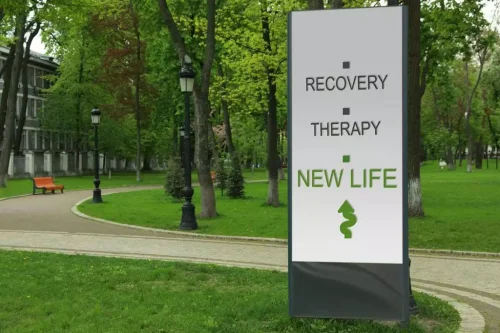
When people discuss alcohol’s effect on weight, they typically refer to the calories in alcohol as the leading cause of weight gain. The sizes of alcoholic drinks at a restaurant or bar are often larger than the standard amounts listed above. In some cases, 1 drink may actually have 2 or more servings of alcohol and calories. If you are served a drink that is larger than the standard size, skip a second drink. At home, use a jigger when mixing drinks, and serve them in smaller glasses. Your body will prioritize burning the calories from alcohol first over other calories you consume from food.
Alcohol Affects the Body’s Fat-Burning Capability
For example, alcohol may affect hormones that control appetite, hunger, and stress. Alcohol is high in calories and is likely to increase abdominal fat. If the drinker compensates for the calories in alcohol by decreasing calorie intake from food, this would explain the lack of weight change with moderate drinking. In several studies, volunteers were given, unknown to them, either an alcoholic beverage or a similarly tasting but alcohol-free beverage before a meal and then allowed to eat what they wished. The volunteers ate the same amount of food each time; the effect of ingesting calories in the alcohol beverage had no effect on how much they ate subsequently. This is one reason why those on a diet are warned that the calories in a cocktail or two before dinner would not decrease their appetite.
Bottom Line on Alcohol and Weight Gain
A modest increase in weight of one kilogram over a 10 week period seems insignificant but over five years this could result in up to 26 kg of weight gain if no compensation takes place. A summary of the studies examined in this article, organized by the trend between alcohol and weight gain/obesity can be found in Table 1. Another important confounding factor to be considered is physical activity level. Furthermore, beer and spirit drinkers appear to have poorer dietary habits in general than wine drinkers [3•]. Thus, accounting for both sides of the energy balance equation (intake, expenditure and lifestyle habits) is crucial to evaluate adequately the association between alcohol intake and obesity. Additionally, drinking alcohol negatively impacts your metabolism and body’s ability to burn fat, contributing to weight gain.
Do you need to give up alcohol to lose weight?

If you are someone who engages in drinking and want to lose weight, the dietitians will help you find a way to incorporate drinking into your lifestyle without sabotaging weight loss goals. If you are someone who engages in drinking and want to lose weight, our dietitians will help you find a way to incorporate drinking into your lifestyle without sabotaging weight loss goals. Chronic alcohol use has been linked to reduced protein synthesis does alcohol make u gain weight which in turn leads to reduced muscle mass leading to a lower BMI. Even though someone who engages in heavy drinking could be gaining weight, specifically, fat mass, they can also be losing muscle mass, which will lower their BMI. If you’re trying to lose weight, it turns out one of the BEST things you can do is stop drinking alcohol. That allows excess calories from the foods you eat to sit around, leading to weight gain.
- Spirits, when drunk neat, can be one of the better choices for alcoholic drinks for losing body weight.
- Having too many drinks in one occasion means you’ll be ingesting hundreds of extra calories, if not thousands.
- One group received intensive lifestyle interventions, and was told about the number of calories in alcohol.
- Alcohol is high in calories and is likely to increase abdominal fat.
Also, many people add soda, flavorings, and other products to their drinks. Some of these ingredients can be high in added sugars and calories, so they could contribute to a calorie excess. Alcohol is considered a source of “empty calories.” Unlike foods that contain essential nutrients, alcohol adds calories to your diet without providing nutritional benefits.
Alcohol spikes cortisol levels in your body.

Also, you experience less REM sleep, meaning you can wake up exhausted. Nutrition is for losing belly fat, and overpriced, medicated goop is for hair loss—that’s how most of us are conditioned to think. Food is for physical wellness, and pharmaceutical products are for mental health conditions—that’s where most of us land when it comes to nutrition psychiatry.
Best nonalcoholic drinks and spirits

Due to factors like hormone changes, increases in appetite, fat-burning inhibition, inflammation, and more, alcohol can definitely cause weight gain. However, like all things in the world of nutrition, this is not true for everybody. Moderate alcohol consumption shouldn’t cause any significant weight gain as long as you do everything else right. But if you aren’t able to eat right when drinking, it’ll significantly affect how you accumulate fat.
Many who drink alcohol will also retain water the next day, causing your weight to increase. However, the alcohol bloat will last only 1-3 days if you get right back on your diet and exercise routine. If you’re trying to slim your waistline and count your calories, you should be aware that alcohol will contribute more calories than other macronutrients. There is no doubt calories play some role in weight loss and weight gain, so the amount of alcohol you consume will impact it.
- This in no way affects our ability to objectively critique the products and brands we review.
- Some evidence suggests that people may seek high-carb foods to satisfy their cravings if their blood sugar dips slightly.
- The sizes of alcoholic drinks at a restaurant or bar are often larger than the standard amounts listed above.
- Alcohol is an inflammatory substance, meaning it tends to cause swelling in the body.
- Steatotic liver disease used to go by the name fatty liver disease.
- But if you aren’t able to eat right when drinking, it’ll significantly affect how you accumulate fat.
Talk with a doctor if you’re finding it hard to limit your alcohol intake or if you have questions. They can work with you to come up with a tailored treatment plan. According to two studies published in 2021, a high intake of alcohol may increase food cravings.
- But even if you don’t consume massive amounts of alcohol, you could still be subjecting yourself to serious weight gain.
- “Would I do that now, having done all this work on the evidence?
- He has over 15 years of experience as a personal trainer and nutrition coach.
- Generally, glands in your body release the right amount of hormones at an exact time, which send messages to your tissues.
Alcohol is a Source of “Empty” Calories
Even if you think you are “burning off” all the extra calories you drank last night by hopping on the treadmill for an hour or skipping out on dessert, it’s not quite as simple as that. Although we need cortisol, it becomes unhealthy when cortisol levels are too high for too long. This is because your body cannot store alcohol, so any food that is in your system while you consume alcohol will be put on hold.
Deixe um comentário